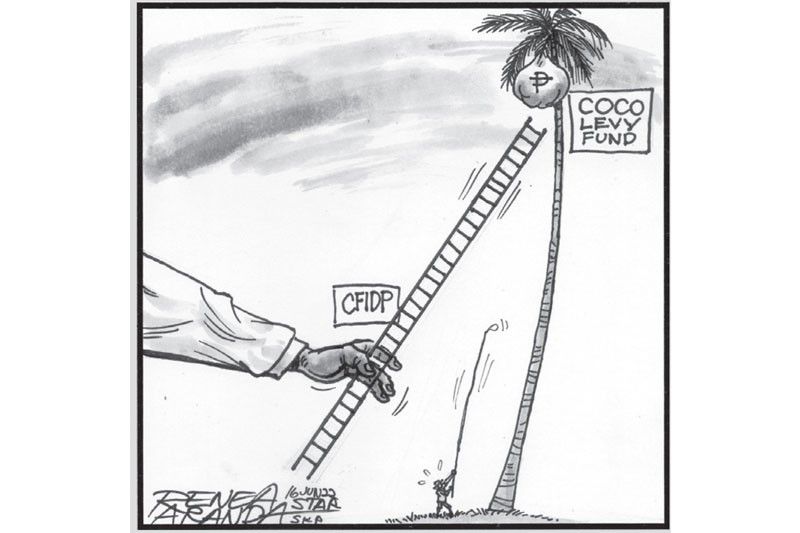EDITORIAL - Coco fund for coco farmers

For over a decade beginning 1971, the first Marcos administration collected taxes and other fees from coconut farmers for copra production.
Since then, coconut farmers have been waging a battle to get the promised benefits from the coco levy fund that was set up from their toil and was meant to finance the development of the coconut industry. Lawsuits filed by coconut farmers’ groups alleged that the coco levy fund was instead used to finance the businesses of cronies of Ferdinand Marcos during the martial law regime.
This month, President Duterte issued an executive order that might finally allow the coconut farmers to tap the coco levy fund, now grown to an estimated P75 billion. Executive Order 172 signed on June 2 sets out the Coconut Farmers and Industry Development Plan, which will allow the coco levy fund to be tapped for increasing the productivity of coconut farmers and reducing poverty in the sector through the rehabilitation and modernization of the coconut industry.
The country has been the world’s biggest exporter of coconut products including coconut oil, copra meal, oleo chemicals and desiccated coconut, with Davao among the three top producing regions. But marginal coconut farmers remain mired in poverty, and have been campaigning for their share of the coco levy fund. In 2012, however, the Supreme Court ruled that the fund belonged to the state.
In February last year, President Duterte signed into law Republic Act 11524, which created the Coconut Farmers and Industry Trust Fund out of recovered coconut levy assets. The trust fund will be tapped for the coconut industry development plan.
There is a wide room for development. The country was late in producing processed coconut juice and coconut cream in commercial packaging, both for domestic and export markets. The pandemic showed a surge in demand for virgin coconut oil, which is being tested as supplemental COVID treatment. The residual coconut pulp from the oil extraction is then grounded into coco flour, which is being eyed as partial wheat flour substitute.
Coconut farmers’ groups have expressed concern that EO 172 excludes those who do not belong to organized groups from accessing the coco levy fund. The groups say these small farmers comprise the majority of workers in the sector. This is a detail that can be corrected by the incoming administration if the coco levy fund is meant to work for the poor.
- Latest
- Trending



























